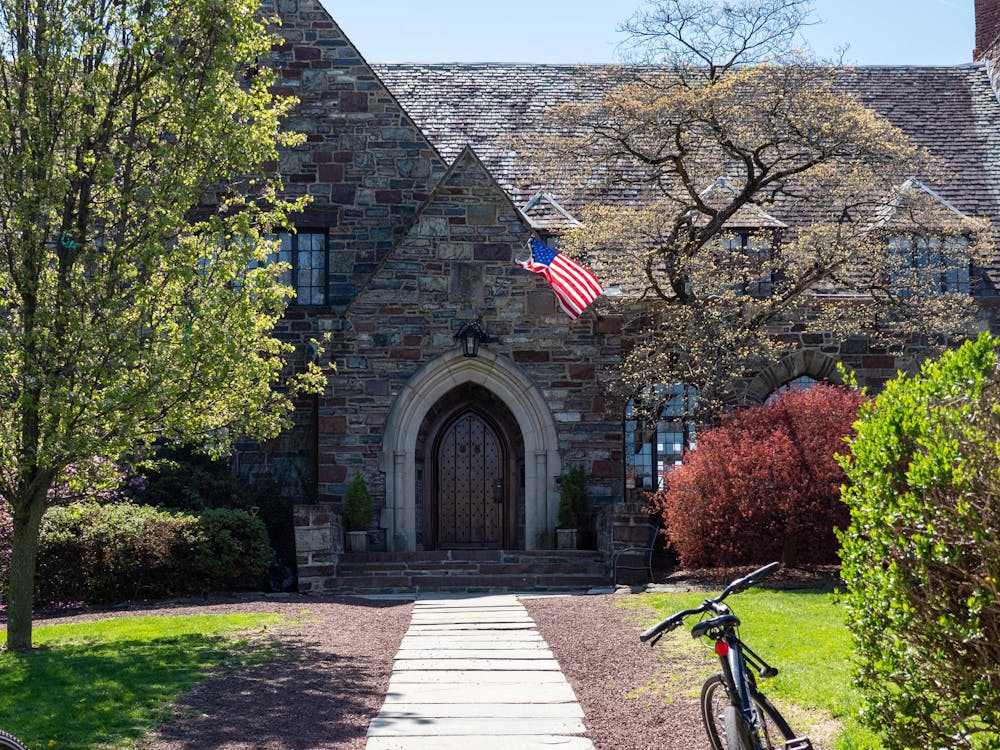I know nothing about Cloister’s financial situation, but I have absolute confidence in the club’s future. One might argue that I’m an example of the maxim “ignorance is bliss.” I accept this accusation cheerfully. Before I begin, I should pause to clarify that I don’t write as a representative of Cloister, just as a member. My reason for writing is simple; I believe that the pervading belief in Cloister’s decline is completely overblown. In fact, I have more faith in Cloister’s future than I do in the future of any other community on campus. I am certainly biased, but what I love about Cloister — its dynamic personality and constant conversation — is what I believe will allow it to thrive. I’ve spent the good part of three years (a double entendre) as a member of Cloister, and not once have I questioned the club’s vitality.
When I reference Cloister to non-members, I’m struck by how little is known about the club. Some are even unaware of the building’s location on Prospect. I’m not embarrassed by this fact. Cloister derives its vitality not from how it’s perceived on the outside, but by how it operates on the inside. Still, I expect the large part of the ‘Prince’s audience is relatively unfamiliar with Cloister, and I fear they’ll read the recent ‘Prince’ article and conclude that Cloister is suffering holistically, which couldn’t be further from the truth.
Cloister is very much alive. Sure, it might lead a life comparable to a Kerouacian tramp, living side-job to side-job, passing its nights in frenetic roadside fever-dreams — but it does so of its own volition! Does such a character sometimes wish his pockets were more full? Of course. But he’s chosen his life understanding full well that he’ll suffer occasionally. I know this analogy might seem nonsensical, and while I won’t give myself so much credit as to promise its pertinence, I expect that those who can understand me will. And for those who might understand me, I’ll make an effort to elaborate.
Cloister may not have many members, but it has no shortage of personality. I probably sound like the owner of a small, energetic dog, but it’s true that I’ve never worried that the club lacks energy. There is never a lull. Upon joining the club, one immediately realizes the uniqueness of its community. There is no prerequisite for joining Cloister, and yet the club maintains a distinct personality even as each year brings a new group of members — there is a consistent wild energy and eccentricity of expression that I hope to communicate in this piece.
This is not to say that the members share the same beliefs and opinions. Indeed, the club contains a great variety of philosophies, many of which conflict. But even when they do, there is never any serious tension. I can’t claim to understand this phenomenon perfectly, but it seems to me that the possibility of serious contention is overwhelmed by the love of entertainment shared by the club’s membership.
By entertainment, I don’t refer specifically to media, though old movies are often playing on the third-floor television. The best example of entertainment is to be found in the dining room, in the casual conversations of members. There, the club’s disparate personalities clash to the amusement of everyone present, the combatants included. Though it might sound strange, I’d argue there’s no community, class, or academic club on campus more conducive for the development of rhetoric.
The dinner-table conversation is governed by an unspoken policy of sink-or-swim (for fear of going overboard, this is the only aquatic pun I’ll permit myself). While the members of the club are extremely welcoming, the conversation is unforgiving, and one must learn to keep oneself afloat — anyone who does so will be rewarded. I can think of countless students who entered the club reticent and left with formidable wits to accompany their diplomas. When I entered Cloister, it felt as though I’d stepped into an ongoing conversation, and that same Kafkaesque conversation has continued over the past three years. New individuals have inherited it. New running jokes have entered the dialogue. But the spirit remains the same as it was when I entered.
What I intended to communicate by my earlier reference to Kerouac was this: the club will not sell its soul. It prioritizes honest personality, and I have confidence it will continue to do so. It is united, I believe, on the principle that the conventional markers of success are not worth boredom. But this is not to say that the two are mutually exclusive — I know there are students on campus who would prefer Cloister to any other community, and I hope my words will sway some to join. I know the majority of sophomores will bicker. I understand. But I genuinely believe that there is no community on campus better suited to strong personalities than Cloister’s, and it’s hard to imagine there could exist a community that shares as close a bond. I trust this bond to overcome all obstacles, corny as it might sound.
I have absolute confidence that Cloister will thrive. And I look forward to returning down the road to see where the conversation has led.
Tristan Collins is a senior at Princeton. He is a member of the history department. He can be reached at tristanc@princeton.edu.









